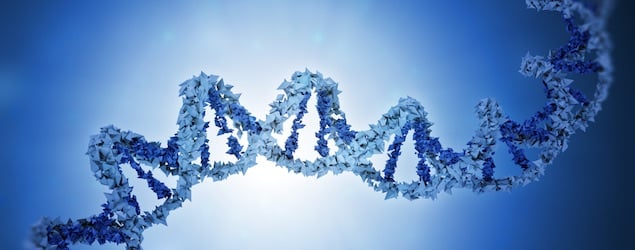Read Now: The Gene Revolution by Amanda Maxham

Amanda Maxham, research associate at the Ayn Rand Institute, was recently interviewed on Power Hour, a podcast hosted by Alex Epstein, the president and founder of the Center for Industrial Progress. In the interview Epstein and Dr. Maxham discuss the technology of genetic engineering, technophobia and what it means (or doesn’t mean) for a food to be “natural.” Dr. Maxham highlights the promise and possibilities of genetic engineering and offers a taste of what’s covered in her newly published report, The Gene Revolution.
In The Gene Revolution, published by the Center for Protection of Intellectual Property at George Mason School of Law, Dr. Maxham explains how today’s biological inventors have used genetic engineering to launch “the gene revolution”:
In the field of medicine, custom-built genetically engineered microorganisms are brewing up rivers of otherwise rare human hormones, life-saving medicines, and much-needed vaccines. In agriculture, scientists are combining their understanding of plant genetics with laboratory techniques of modern molecular biology to “unlock” the DNA of crop plants. By inserting genes from other plants or even from common microorganisms in just the right place, they are able to give plants desirable traits, solving problems that farmers have faced for millennia.
In the report, Dr. Maxham concretizes and celebrates numerous ways genetic engineering is improving human life by describing 29 different genetically improved plants, animals and microorganisms such as Ebola antibodies, flu vaccines, fast-growing salmon, sterile mosquitoes, avian-flu-resistant chickens, disease-resistant papayas and many more.
If you want a better understanding of and appreciation of genetic engineering, then I recommend you read Dr. Maxham’s The Gene Revolution. And if you think she has a good point, then I would encourage you to share with friends and family.
Other resources:



